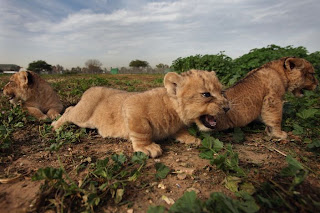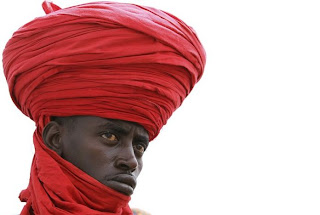
Two excellent quotes, one about religion and the other about prayer, from Gandhi's autobiography:
"... The Sermon on the Mount ... went straight to my heart. I compared it with the Gita. The verses, 'But I say unto ye, that ye resist not evil: but whosoever shall smite thee on thy right cheek, turn to him the other also. And if any man take away thy coat let him have thy cload too,' delighted me beyond measure and put me in mind of Shamal Bhatt's 'For a bowl of water, give a goodly meal' etc. My young mind tried to unify the teachings of the Gita, The Light of Asia and The Sermon on the Mount. That renunciation was the highest form of religion appealed to me greatly."
"Supplication, worship, prayer are no superstitution; they are acts more real than the acts of eating, drinking, sitting or walking. It is no exaggeration to say that they alone are real, all else is unreal. Such worship or prayer is no flight of eloquence; it is no lip-homage. It springs from the heart. If, therefore, we achieve that purity of the heart when it is 'emptied of all but love', if we keep all the chords in proper tune, they 'trembling pass in music out of sight'. Prayer needs no speech. It is in itself independent of any sensuous effort. I have not the slightest doubt that prayer is an unfailing means of cleansing the heart of passions. But it must be combined with the utmost humility."
"... The Sermon on the Mount ... went straight to my heart. I compared it with the Gita. The verses, 'But I say unto ye, that ye resist not evil: but whosoever shall smite thee on thy right cheek, turn to him the other also. And if any man take away thy coat let him have thy cload too,' delighted me beyond measure and put me in mind of Shamal Bhatt's 'For a bowl of water, give a goodly meal' etc. My young mind tried to unify the teachings of the Gita, The Light of Asia and The Sermon on the Mount. That renunciation was the highest form of religion appealed to me greatly."
"Supplication, worship, prayer are no superstitution; they are acts more real than the acts of eating, drinking, sitting or walking. It is no exaggeration to say that they alone are real, all else is unreal. Such worship or prayer is no flight of eloquence; it is no lip-homage. It springs from the heart. If, therefore, we achieve that purity of the heart when it is 'emptied of all but love', if we keep all the chords in proper tune, they 'trembling pass in music out of sight'. Prayer needs no speech. It is in itself independent of any sensuous effort. I have not the slightest doubt that prayer is an unfailing means of cleansing the heart of passions. But it must be combined with the utmost humility."




































